
THREAD How worried should US/EU policymakers be about Russia’s harnessing emerging technologies like AI & machine learning (ML) to support its assertive foreign policy agenda? I dug into these issues for a new paper as part of Carnegie’s project, The Return of Global Russia 1/x 
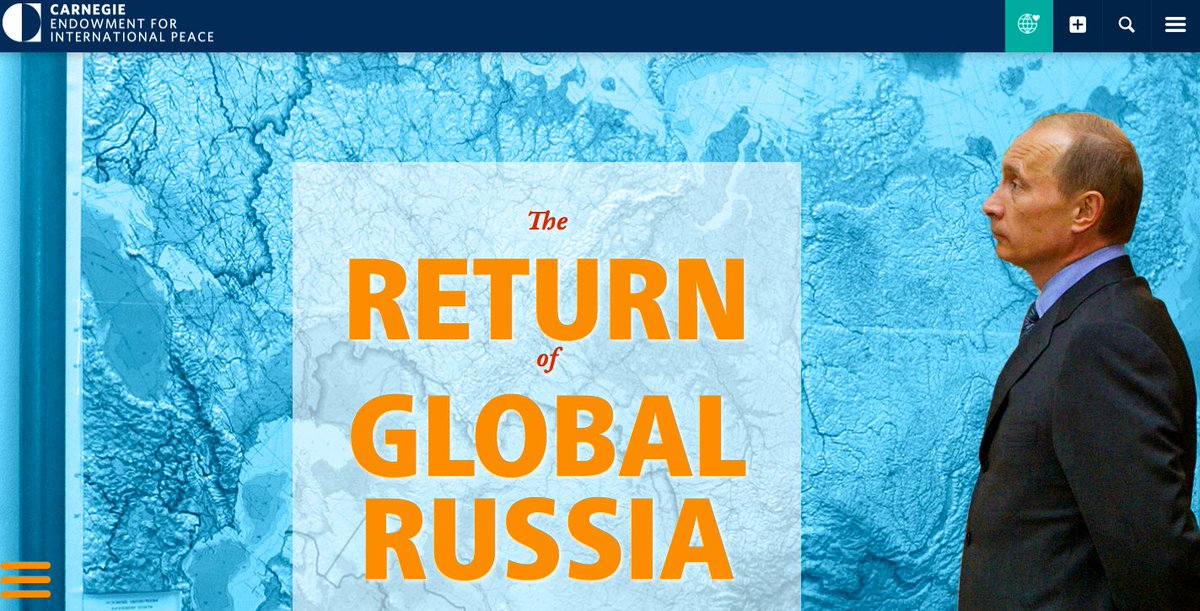
There’s no doubt the Kremlin’s ongoing campaign of mayhem (the war in #Ukraine, interference in the 2016 and 2020 US presidential elections, #SolarWinds, etc) has shown Russia’s operators are highly technically capable, operationally aggressive and innovative. 2/x 

Part of what makes the Kremlin’s current calling cards so easy to spot—and more difficult to counter or deter—is a remarkable indifference to the knock-on effects of its behavior. This kind of operational art and bravado can mean more sometimes than pure technical chops. 3/x 
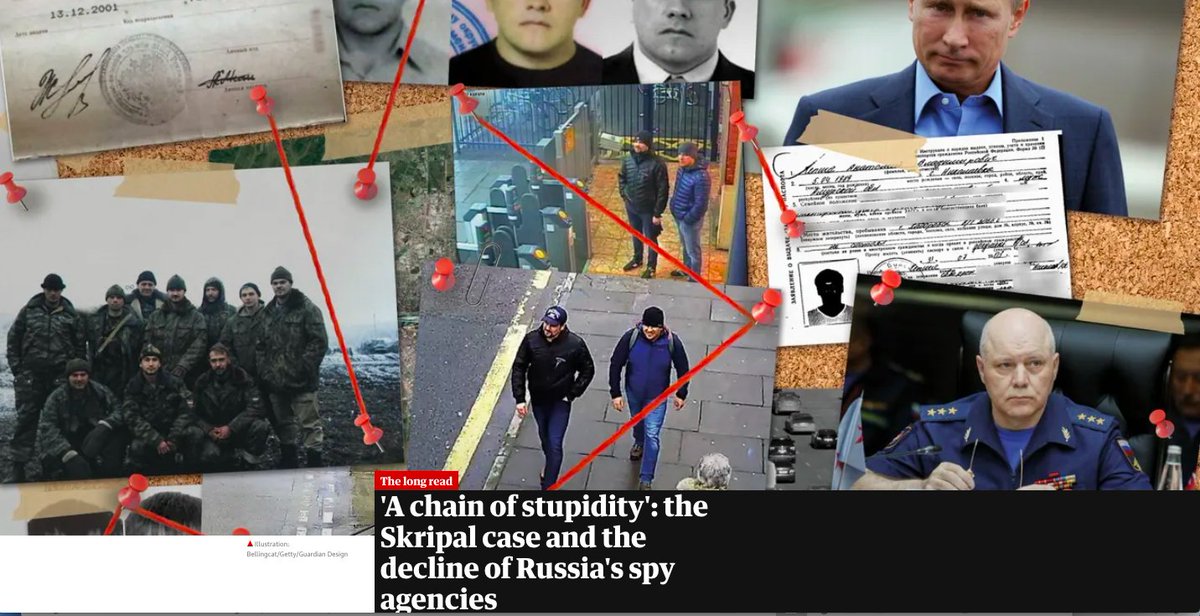
Russia's had a lot of “firsts” in this domain. Since the mid-2000s, it has piloted & refined strategies that combine traditional cyber operations w asymmetric attacks to undermine adversaries’ information ecosystem and political processes @MarkLandler nytimes.com/2007/05/29/tec… 4/x 
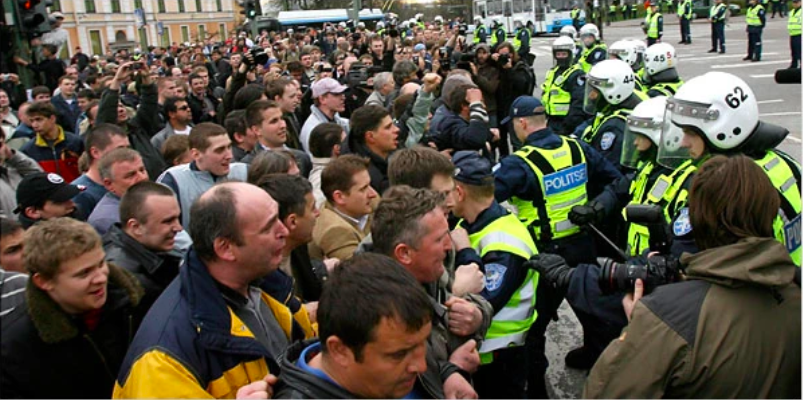
The war in Ukraine pushed these efforts to the next level (eg cyber ops that turned off lights/heat in the dead of winter and NotPetya, which quickly spread beyond Ukraine’s borders and caused billions of dollars in losses) @a_greenberg wired.com/story/notpetya… 5/x 

But what’s also striking is the split-screen between Moscow’s ability to foster an image in our minds of all-powerful, technological prowess and daring and the country’s long-standing difficulties in developing advanced technologies or promoting innovation. 6/x 
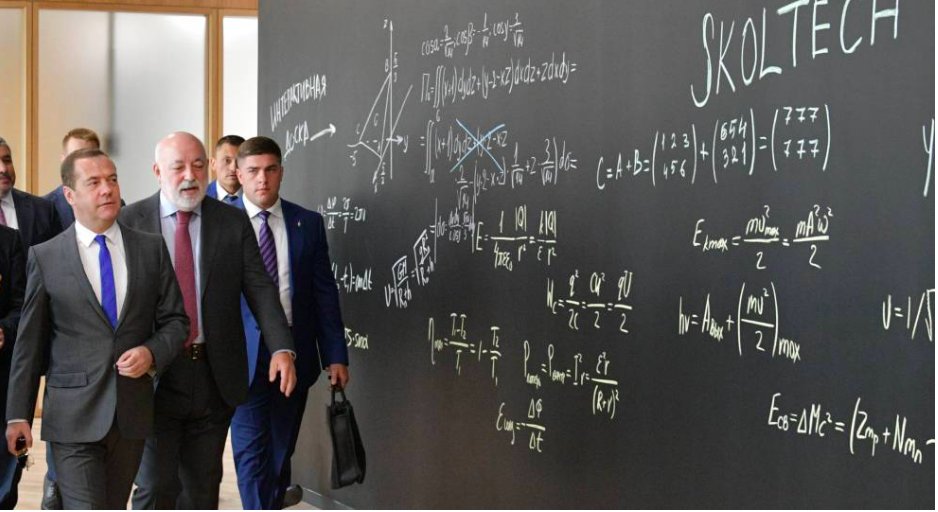
As Thomas Rid has warned, “The Kremlin’s...particularly adept at gaming elements of this new age or at the very least are good at getting everyone to talk about how good they are which could be the most important trick of all” newyorker.com/magazine/2020/… @RidT @yaffaesque 7/x
Russia’s mastery of the black arts of tech is somewhat belied by the country's falling further behind in key technologies. Russia’s best IT specialists are leaving in droves. Senior FSB officials portray that as a major national security threat. interfax.ru/russia/762434 8/x 

Unlike China, with a vast population and vibrant economy, Russian engineers have few innate national advantages when it comes to the large data sets/comm'l applications that underlie innovation in AI. This statistic really jumped out at me cset.georgetown.edu/research/russi… @RitaKonaev 9/x 
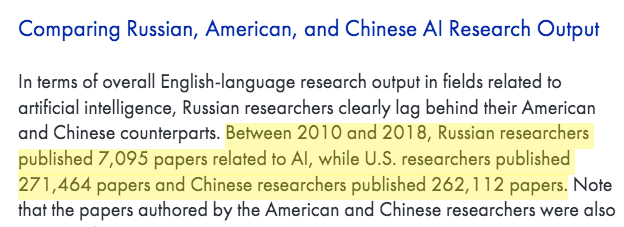
There’s also a fascinating discussion brewing among tech experts like @timhwang and @BuchananBen about whether it’s realistic to expect that AI/ML will usher in an era of hyper-charged cyber and influence operations cset.georgetown.edu/research/deepf… cset.georgetown.edu/research/autom… 

Faced with a race it can’t win, the Kremlin is focusing AI/ML investments on key defense/natsec areas (eg robotics/autonomous systems, unmanned aerial vehicles, electronic warfare, info operations). Some of these are paying off @SamBendett @RitaKonaev warontherocks.com/2019/07/russia… 10/x
Still, it's difficult to pinpoint signs of major tech advances in recent Russian influence ops or malign activities. The Kremlin's techniques in 2020 U.S. presidential election had more in common w 1920s heyday of Comintern than sensationalized media coverage about AI, etc. 11/x 
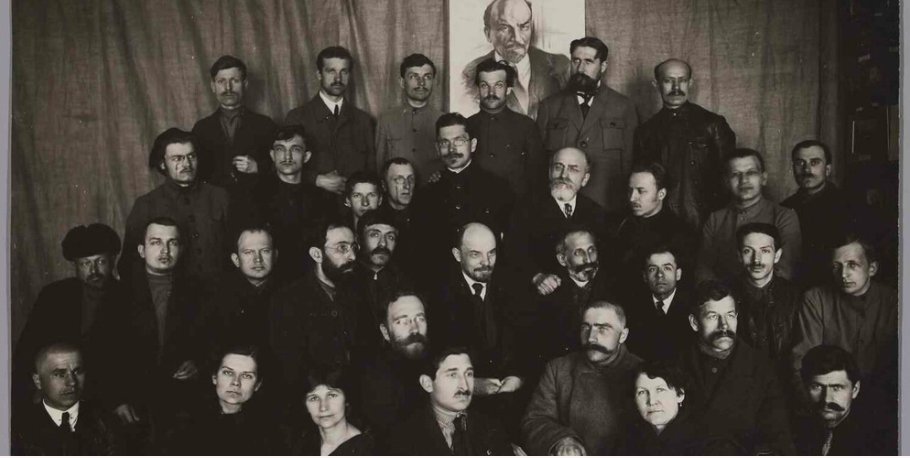
The much-hyped Russian Internet Research Agency spawned websites with funny/vulgar names so blatant they seemed to betray a desire to be uncovered. Nor did it take a ton of savvy to amplify readily apparent divisions in the US electorate 
https://twitter.com/DrRadchenko/status/1301046882995597312?s=20@DrRadchenko 12/x

The biggest shocker, perhaps, was that a sitting president of the United States and his allies gleefully embraced (yet again) the fruits of a Russian active measures operation. With friends in such high places perhaps the Kremlin realized it didn't really need fancy schmancy? END 
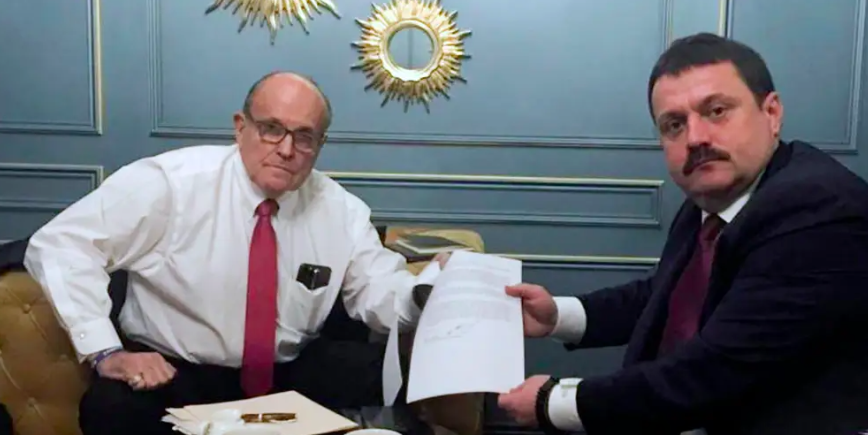
• • •
Missing some Tweet in this thread? You can try to
force a refresh














